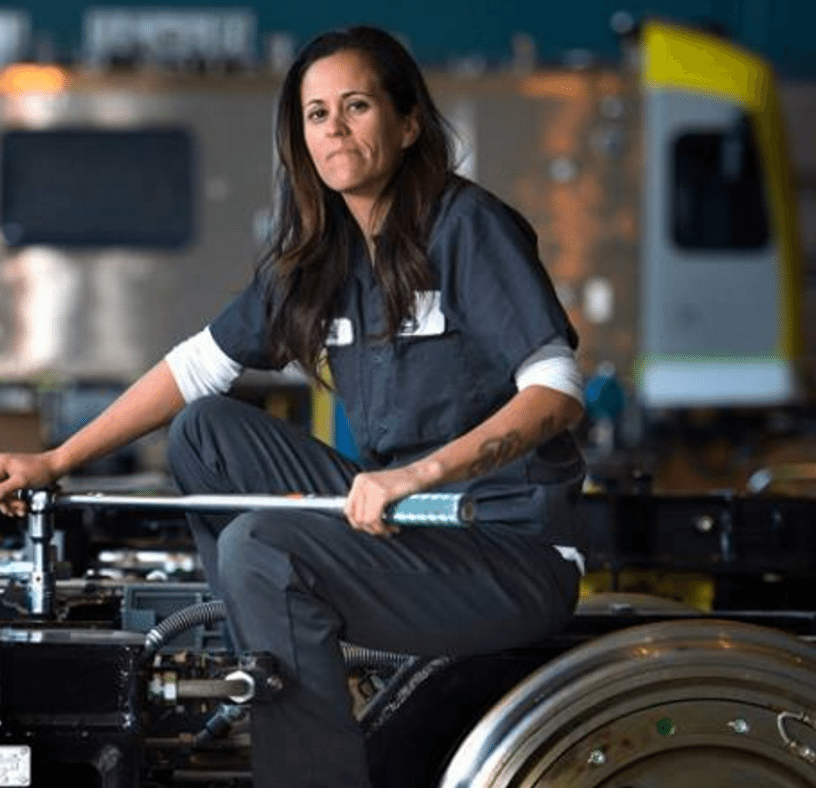Labor & Economy
Going the Distance: Investing in Mass Transit and Jobs
JMA recently developed the U.S. Employment Plan (USEP), which encourages public transit agencies such as LA Metro to request firms seeking contracts to build passenger buses and trains with federal and local tax dollars to hire American workers.

In the past, U.S. transit agencies at both the federal and municipal levels operated passenger railcars made in Europe and Japan. But later this morning Jobs to Move America (JMA) will organize a community action at Union Station that calls on the two firms seeking a $1 billion transit contract for 282 heavy-rail cars to invest in community employment by creating local jobs. The companies vying for this lucrative project are China Railway Rolling Stock Corporation (CRRC) and Hyundai Rotem.
Formed in 2013, JMA is a broad-based coalition of 50 academic, civil rights, environmental, faith, labor and philanthropic groups. The national nonprofit is based in Los Angeles – where this morning’s event will be symbolically staged in front of the Los Angeles County Metropolitan Transportation Authority offices on Tax Day. With the $1 billion contract to be drawn from taxpayer-funded sources, JMA hopes the winning bidder will step up and use a part of that contract to create middle-class jobs in the U.S. Much is at stake.
Where: LA Metro Headquarters,
1 Gateway Plaza, Downtown Los Angeles
When: Monday, April 18, 10 a.m.[/box]
“With nearly 23 percent of Angelenos living in poverty, we need to utilize every opportunity to create jobs in the region,” JMA’s Los Angeles organizer Diego Janacua said in a statement. “That’s why we’re working hard to ensure the billions of dollars being invested in transportation are creating jobs for our communities and improving livelihoods for workers across the country.”
JMA recently developed the U.S. Employment Plan (USEP), which encourages public transit agencies such as LA Metro to request firms seeking contracts to build passenger buses and trains with federal and local tax dollars to hire American workers. After being reviewed by the federal Dept. of Transportation, the USEP has become an option for local transit agencies to use in their railcar procurements.
Erika Thi Patterson, JMA’s senior policy coordinator, told Capital & Main by phone that USEP’s elements range from constructing manufacturing facilities to workforce development, apprenticeships and training programs, along with creating openings for historically marginalized Americans.
“There is also USEP language to extend employment opportunities to people leaving the criminal justice system,” she said. “There’s really a lot of potential here to create hundreds of good jobs regionally and nationally.”
Companies bidding for the LA Metro project that commit to a community employment plan will score higher on the agency’s evaluation of their bids. However, the firms’ commitment for regional transit investment is voluntary, not mandatory, according to Thi Patterson. Nevertheless, there are precedents for such investment and the employment that it can and does deliver across America under the USEP process.
The Chicago Transit Authority, for example, recently used the USEP to award a taxpayer-funded contract to CSR Sifang America (now merged with CRRC) to construct a $40 million assembly facility in the Windy City that will add 170 manufacturing jobs. CSR submitted a bid of $1.3 billion, the lowest, for the railcars that Chicago workers will build to replace the oldest ones the city’s transit system currently operates.

-

 Column - State of InequalityJanuary 22, 2026
Column - State of InequalityJanuary 22, 2026On Eve of Strike, Kaiser Nurses Sound Alarm on Patient Care
-

 The SlickJanuary 20, 2026
The SlickJanuary 20, 2026The Rio Grande Was Once an Inviting River. It’s Now a Militarized Border.
-

 Latest NewsJanuary 21, 2026
Latest NewsJanuary 21, 2026Honduran Grandfather Who Died in ICE Custody Told Family He’d Felt Ill For Weeks
-

 The SlickJanuary 19, 2026
The SlickJanuary 19, 2026Seven Years on, New Mexico Still Hasn’t Codified Governor’s Climate Goals
-

 Latest NewsJanuary 22, 2026
Latest NewsJanuary 22, 2026‘A Fraudulent Scheme’: New Mexico Sues Texas Oil Companies for Walking Away From Their Leaking Wells
-

 The SlickJanuary 23, 2026
The SlickJanuary 23, 2026Yes, the Energy Transition Is Coming. But ‘Probably Not’ in Our Lifetime.
-

 The SlickJanuary 27, 2026
The SlickJanuary 27, 2026The One Big Beautiful Prediction: The Energy Transition Is Still Alive
-

 Column - State of InequalityJanuary 29, 2026
Column - State of InequalityJanuary 29, 2026Are California’s Billionaires Crying Wolf?

